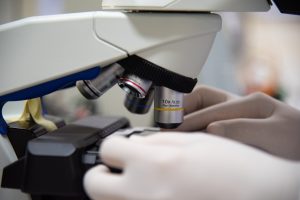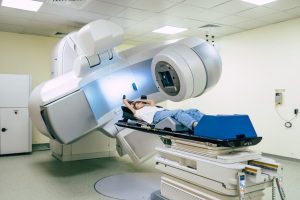
2026 Cancer Statistics
Cancer Death and Diagnosis Statistics for 2026: 2 RCCA Oncologists Provide Insights into the Numbers The latest statistics from the American Cancer Society (ACS) detail
HIPAA Alert: Potential Data Breach Learn More
Questions on Oncology, Hematology and/or Infusion Clinical Services due to COVID-19 Crisis – CALL 833-698-1623
Important Information for Our Patients Regarding the Coronavirus.
RCCA Providing Area Cancer Patients with Access to Care During Coronavirus Outbreak
RCCA Offering Patients Virtual Visits During Coronavirus Pandemic
Breast cancer is one of the most common cancer types affecting women, second only to skin cancer. For this reason, education is important. Women of all ages and backgrounds should understand the risk factors and how best to mitigate them.
Many individuals diagnosed with breast cancer turn to Regional Cancer Care Associates (RCCA) for treatment. RCCA is a group of more than 100 medical oncologists and hematologists who treat patients who have solid tumors, blood-based cancers and benign blood disorders at 25 locations throughout New Jersey, Connecticut, Massachusetts, and the Washington, D.C., area. They strive to educate patients while providing innovative care.
Here, we explore the relationship between breast reduction surgery and breast cancer risk, to help readers make informed decisions about their treatment. Does breast reduction reduce cancer risk? In many cases, the answer is yes.

Studies have shown that breast reduction surgeries can significantly reduce an individual’s risk of developing breast cancer. According to research by the National Cancer Institute, breast reduction surgery can reduce cancer risk by up to 95% for women with a harmful mutation in the BRCA1 or BRCA1 gene. It can reduce risk by up to 90% for women who do not have a gene mutation but do have a strong family history of breast cancer.
Breast reduction surgery reduces cancer risk primarily by reducing the amount of tissue that can become cancerous. For this reason, the exact degree of risk reduction depends on the specific procedure. The more breast tissue that is removed, the more a person’s cancer risk will be reduced:
People should keep in mind that no procedure is 100% effective at preventing cancer. It is impossible for surgeons to remove all tissue that may become cancerous, meaning there is always a chance of developing cancer even after receiving surgery.
A prophylactic procedure is one performed to prevent future illness. Because breast reduction surgery can reduce cancer risk, physicians often recommend it for preventative reasons. In this case, bilateral prophylactic mastectomy is a breast reduction or removal that is performed specifically to reduce the risk of developing cancer. It is an elective procedure, meaning it is not required for the person’s health. It is often strongly recommended, however, especially for people at higher-than-average risk of developing breast cancer.
Not every woman needs to consider getting preventative surgery. These procedures are invasive, physically taxing, and result in an altered appearance. Though they do reduce cancer risk, the benefits may not be worth it for individuals at low-to-average risk of cancer. Instead, prophylactic or preventative procedures are most often recommended for at-risk individuals. These are the most important risk factors for consideration when deciding whether to pursue surgery:
Breast cancer is most common in older women, especially those who have finished menopause. In these women, breast cancer risk increases in relation to breast size and weight gain. This means a breast reduction will be more effective in reducing cancer risk.
Preventative breast reduction surgery is most effective for women with certain hereditary gene mutations. The BRCA1, BRCA2, and several other genes are responsible for repairing damaged DNA. Mutations in these genes may cause them to repair DNA improperly, resulting in changes that turn cells cancerous. Individuals with these mutations are at a much higher risk of developing cancer.
Evidence has shown that some cancer risk factors are hereditary. Even if a woman is not aware of a gene mutation, a strong family history of breast cancer may indicate that she is also at risk. This is especially true if family members developed the disease early in life.
Medical advances have greatly increased the effectiveness of breast cancer treatment. Even after a successful treatment, however, there is a chance that the cancer may come back. Patients who have already been diagnosed with breast cancer and undergone treatment may consider preventative surgery. This step may prevent cancer remission and help the patient avoid a second round of treatment.
Surgery, especially major surgeries like breast reduction and removal, is expensive. While it may reduce a person’s likelihood of life-threatening disease, not everybody can justify the expense. Health insurance exists to help people pay for necessary medical procedures. It can be difficult, however, to predict which procedures insurance will cover.
Many health insurance companies will only cover medically necessary surgeries. Whether or not a risk-reducing surgery is considered medically necessary often depends on the insurance provider and the specifics of their policy. Some companies require a second opinion or a letter from the healthcare provider to confirm the medical necessity. Anybody considering risk-reducing breast reduction surgery should discuss potential coverage issues with their physician before proceeding.
Though breast reduction surgery can reduce cancer risk, there are many reasons not to pursue it. Some individuals may not be at great enough risk to consider it necessary. Others may face financial obstructions, or they may simply wish to avoid the stress and physical changes associated with surgery. Fortunately, there are other steps a person can take to reduce their cancer risk. These include:
Weight gain and larger breasts are associated with a higher risk of breast cancer, especially after menopause. Therefore, women can reduce their risk by maintaining a healthy weight. They should also avoid rapid and significant weight gain, even if they lose weight afterward.
Vigorous physical activity helps to prevent weight gain and can reduce cancer risk in other ways. Physicians suggest a minimum of 150 to 300 minutes of moderate-intensity exercise each week, 75 to 150 minutes of vigorous or high-intensity exercise, or a combination of both.
Most guidelines recommend that women start breast cancer screenings after age 45. Women at an increased risk of cancer, however, may wish to start earlier or schedule mammograms more frequently. This increases the likelihood of detecting cancer early, allowing for more effective treatments.
The U.S. Food and Drug Administration (FDA) has approved a few medications to reduce the risk for women with a strong family history of breast cancer. Women should speak with their physician about whether risk-reducing medication, also called chemoprevention, is right for them.
Anybody can be affected by breast cancer, which is why it is important to understand the risks. Regional Cancer Care Associates educates patients to help them avoid life-threatening cancer. RCCA specialists provide care to more than 30,000 new patients and 265,000 established patients each year. RCCA physicians offer patients innovative therapies, including immunotherapies and targeted therapy, cutting-edge diagnostics as well as access to approximately 300 clinical trials in community-based centers close to home.
For more information or to schedule an appointment,
call 844-346-7222. You can also schedule an appointment by calling the RCCA location nearest you.

Cancer Death and Diagnosis Statistics for 2026: 2 RCCA Oncologists Provide Insights into the Numbers The latest statistics from the American Cancer Society (ACS) detail

If you’ve been diagnosed with breast cancer, you may have heard radiation therapy discussed as part of your treatment plan. This approach is commonly used

Cancer and its treatment often impact a person’s quality of life. In the case of prostate cancer, a man’s sex life may be affected. Sexual

Regional Cancer Care Associates is one of fewer than 200 medical practices in the country selected to participate in the Oncology Care Model (OCM); a recent Medicare initiative aimed at improving care coordination and access to and quality of care for Medicare beneficiaries undergoing chemotherapy treatment.